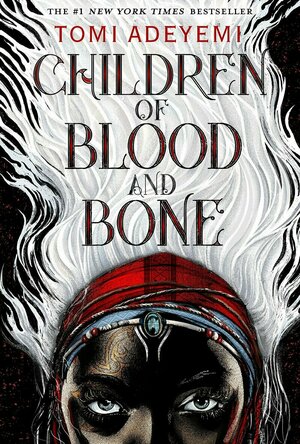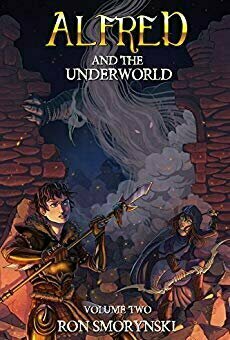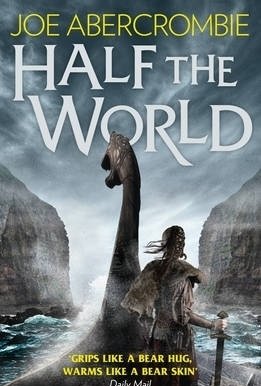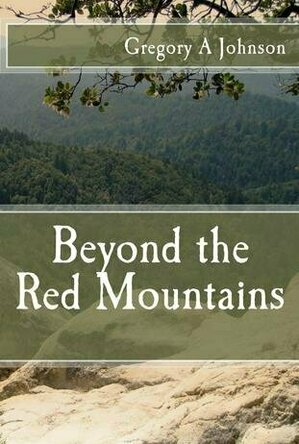
Live, Local, and Dead
Book
In a fit of anger, radio DJ Jaye Jordan blows a snowman’s head off with a Revolutionary War-style...
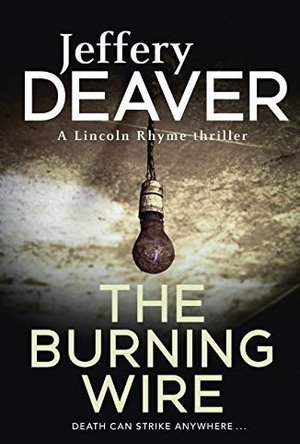
The Burning Wire (Lincoln Rhyme #9)
Book
The weapon is invisible and omnipresent. Without it, modern society grinds to a halt. It is the...

Murder on the Steel Pier (A Tess Mancini Time Travel Mystery #1)
Book
Greetings from the Nifty Fifties… The morning after a blowout birthday celebration in Atlantic...
Historical Mystery Time Travel
Goddess in the Stacks (553 KP) rated Children of Blood and Bone: Book 1 in Books
Feb 18, 2018
That massive frustration aside, I LOVED THIS BOOK. African-inspired fantasy novels are starting to crop up, along with other non-European based fantasy, and I'm loving it. (You can find Russian inspired fantasy that I've read previously here and here, and Jewish/Arab fantasy here.) Adeyemi is a Nigerian-American author, and this is her debut novel. It definitely shows some hallmarks of a debut novel - the dialogue is a bit stilted in places, and it's a little bit formulaic - but the world building is excellent.
Children of Blood and Bone is a story of oppression, and the sparks of a rebellion. I assume the rest of the trilogy will deal with the actual rebellion, but given the cliffhanger it ends on, I'm not actually sure of that. When Zélie, the main character, was very young, magic failed, and the king, who was afraid of maji, took the opportunity to kill every maji in his kingdom before they could find a way to regain their powers. Since then, every person who could have become a maji as they grew (they're marked by their white hair) has been treated as a second-class citizen. They're forced into slums, used as slave labor, kicked around by nobility and guards, made to pay higher taxes, and forbidden to breed with the other classes. They don't have magic - and they have no way to get it - but they're treated as trash by the king that hates them, and accordingly by the rest of his subjects.
At the beginning of the book, a magical artifact resurfaces that restores magic to any diviner (potential maji) that touches it. This, of course, is not okay with the king, and most of the book is about the race to use the magical artifact while being chased by the king's son and his guards who are trying to destroy it. The conflicted prince has secrets of his own, though, and as the book weaves through jungles, mountains, and seas, he wavers in his mission.
It's always difficult to review books without giving too much away about the plot, so I won't say much more about the events. I really enjoyed that they rode giant cats - leopanaires. Zélie and her allies ride a lion leopanaire, which is apparently somewhat unusual. Most of the guards ride leopards or cheetahs, while the royal family rides snow leopanaires. The magic is unique, the gods and religion are beautifully fleshed out, and overall I just really loved this world, and I'm very sad it will be so long before I can dive back into it.
You can find all my reviews at http://goddessinthestacks.wordpress.com
EmersonRose (320 KP) rated Alfred: And The Underworld in Books
Nov 20, 2019
Alfred and the Underworld is the second volume of Alfred: The Boy King series by author Ron Smorynski. Published on November 2017, this book continues Alfred’s journey as the King of Westfold. After spending some time back with his mother in the human world researching and preparing, he goes back to his people. Things are not going well, and Alfred has a lot of work to do to help his people get back on their feet and defend themselves from the darkness that surrounds them.
In this book, Smorynski continues not only with this adventure-filled story but has continued to build up his fantasy world. Alfred encounters several new magical creatures, both good and bad around his kingdom. We also get a further building of the magical system and who has access to magic, which adds to the world and what is possible within it. Another interesting aspect was the history and politics that took a forefront position in this book. We are given a better grasp of the world outside of Alfred’s little kingdom. There are more players in the game now some that could be allies and some that have allied themselves with the evil in the land.
I really enjoyed that in this book we get to see different perspectives. While mostly told from Alfred’s point of view, we also get sneak peaks into both his mother’s mind and the enemies Alfred, and his people are fighting. This was interesting because these other characters are privy to information Alfred does not have access to and helps build the intrigue of the story. I particularly liked the chapters focused on Alfred’s mother. Through the excitement of Alfred building up his kingdom and the thrill of preparing for battle and defeating enemies, the mother is a reminder of a big picture and a deeper mystery. Throughout the first book we were given pieces of the life that she left behind when she brought Alfred to our world, and slowly those pieces are coming together.
I greatly enjoyed this book and am excited about the third book in the series Alfred and the Quest of the Knights. Alfred and the Underworld was an exciting, fun, and interesting story on its own, but it also set up nicely for the next installment. Between the big bad that is Gorbogal the witch and the truth bomb that was dropped on Alfred in the last sentence as a cliffhanger, this book as left me desperately waiting for more.
Natacha (374 KP) rated Half the World in Books
Dec 15, 2019 (Updated Dec 15, 2019)
Things I liked:
-Because the main plot is so simple all characters and their developments are amazing. All of them have their own voice, their own personality and keep evolving and keep you intrigued until the end.
-Thorn. Thorn is a strong female character but with a twist. She is not the typical strong female character that is the best fighter to ever walk this earth, the most beautiful woman to ever walk the earth and who think that loves is something stupid and not for her. No, she tall, muscular, with scars and a weird hair cut. She is a fighter and a killer but you get to see her become one through hard training and strong will. And when she falls in love? She is afraid of it, yes, but when the times comes she doesn't shy away from it, she embraces it and doesn't mind showing a more gentle side of her. That was very nice to see.
-Brand is our second main character and the opposite of Thorn. He is a sweet boy that wants to be a soldier but deep down he just wants to be a good person and do good no matter what.
-There is a love story but it's not the main theme of the story and it's a slow burn one. Initially, I was a little annoyed just because at some point there is a misunderstanding that could have easily been solved by simply talking but the way things evolve later makes up for it.
-The ending left me with the feeling that something big is coming with the next book and made we want to pick it right away.
-We got to see magic! One of my complaints in the first book was that we had elves and magic being mention but never saw any of it.
Things I didn't like
-The main reason why my rating is (4.5 instead of 5 goodreads rating) 9/10 instead of 10/10 if this one. As I mention the main plot is very basic. I group of misfits that are thrown together. They travel a lot, get to know each other, bond and fight bad guys. Unfortunately, although I loved the characters, for more than half of the book I felt disappointed because what I was reading felt very similar to what I had read in book one. In Half a King you had again a group of misfits thrown in a boat together that travelled a lot, had to find a way to survive, they get to know each-other bond and fight bad guys. It sounds like a minor thing but when I picked because it picked up this book straight after the first one it felt repetitive.
Phil Leader (619 KP) rated Beyond the Red Mountains in Books
Nov 8, 2019
Kelvin's first clue that all might not be as he has been taught when he discovers an old book warning about a mysterious figure called Luther who seems to have been carefully erased from the history of Triopolis. And it is clear that he is not the only one who is aware of secrets.
Elizabeth is the princess of Westville, the centre of a civilisation that has conquered every other city in the world - there are not many. She is locked in a loveless and arranged marriage but is determined to find some way out.
When fate brings Kelvin and Elizabeth together they realise there is a lot more going on than the elders of either city would have them believe. Before long they are on the run, desperately trying to save themselves and their cities from dark forces. They have allies and enemies, but telling one from the other is only half the battle...
Beyond the Red Mountains is a fantasy novel that is of epic proportions but avoids all the tropes and cliches of 'epic' fantasy. There isn't really a great quest, there isn't a dark lord threatening all of existence. All of the characters seem very real and all have their own reasons for their actions, whether these are with or against the main protagonists.
There are many twists and turns and the story doesn't let itself get too bogged down in long conversations or descriptions, letting the story unfold to reveal the narrative and the history. Not every decision Kelvin and Elizabeth make is the right one, but it is always made with the best intentions. The characterisation really does stand out, with a lot of care taken to make the characters believable. I was particularly struck by one of the characters who are opposed to Kelvin and Elizabeth but the reader ends up feeling enormous sympathy for.
There is a (perhaps inevitable) romantic connection between Kelvin and Elizabeth but this is well played and unfolds very realistically and is never overplayed or overstated. Some of the keepers of ancient wisdom they meet are perhaps a little to forthcoming about forbidden knowledge but this means the story doesn't slow but can take the next step so this can be forgiven.
The prose is very simple, clearly aimed at a young adult audience, although some of the themes and scenes are perhaps not for the very young end of the spectrum. As an introduction to lengthy fantasy tales this works very well though. The ending is a real cliff hanger and definitely makes me want to read the sequel.
There were a few more spelling mistakes and incorrect (or plain missing) words in the eBook version I read but this wasn't really a problem, it was always clear what was intended.
I would recommend this book to anyone who wanted to tackle a human-scale epic fantasy novel with a difference, one that cared about all of its characters, even the ones nominally pitched against the 'heroes'.
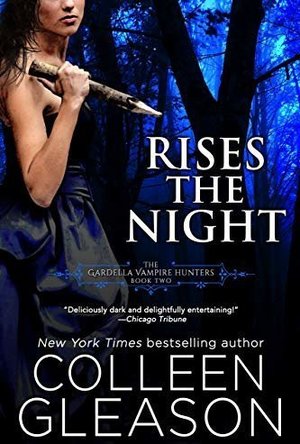
Rises The Night (The Gardella Vampire Hunters, #2)
Book
The second installment in award-winning, New York Timesbestselling author Colleen Gleason's...
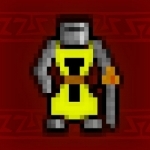
Warlords Classic - official port from Mac/PC/Amiga
Games
App
Warlords Classic is an official port of the fabulous game you have been playing in your childhood on...

Brothers in Arms® 3: Sons of War
Games
App
Join the heroic MULTIPLAYER shooting action of World War 2! *IMPORTANT* Brothers In Arms® 3: Sons...
